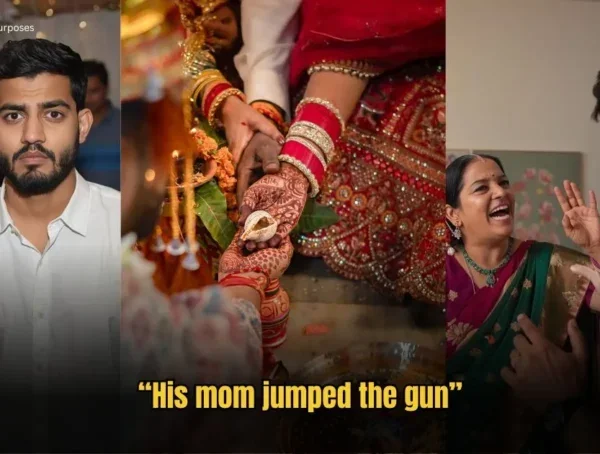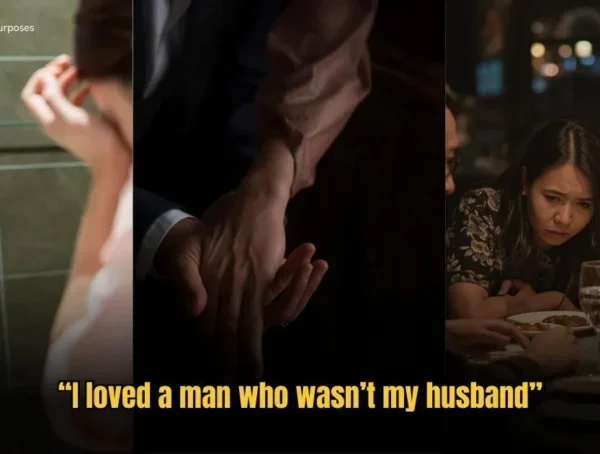The signs of being in an abusive relationship often seem obvious enough.

A partner which is controlling, manipulative and verbally abusive are some of the red flags we’re often told to watch out for. However, many people in abusive relationships often miss out on these red flags or warning signs because the control and manipulation takes place incrementally.
The fable of the boiling frog is one way to understand why people find it so difficult to see things as they are. Obviously, the live frog is not put in boiling water straight away, or it would instinctively jump out of the pot immediately.
The frog or the victim of abuse is first put into lukewarm water or a very comfortable position. At this stage, abusers often use ‘love bombing’ to convince their partners of their undying love for them with over-the-top displays of adoration and affection.
The next steps involve slowly increasing the temperature of the water so that the frog adapts to it naturally. At this point, the abuser tries to gain control of your life by using emotional manipulation.
One of my ex-boyfriends used to get really upset if I talked to any of his friends or any guy in a friendly manner. First he would get really angry at me and say nasty things, then he would just break down crying. Although his reactions seemed quite irrational to me initially, his explanation that he was suffering from post-traumatic stress as a result of his first girlfriend cheating on him with his best friend made me feel really bad for him. He also managed to convince me to deactivate my Facebook account for the same reason.
Little by little, you find yourself compromising your own independence and freedom. You find yourself seeing less of your friends and family for the sake of your partner.
What’s worse is that seeing less of friends and family is almost expected when you first get into a committed romantic relationship – most people would not even see it as a red flag and it’s not even necessarily one.
Eventually the abuser will start to subtly belittle you and put you down in public to break your self-esteem. Initially, this is usually done in a “joking” manner, but it’s nevertheless humiliating for the person enduring it.
These episodes of belittling are always sandwiched in between public displays of affection, flattery, compliments and general ‘love bombing’ tactics in order to make you comfortable enough to stay and feel loved. The little “jokes” are forgotten, and you find yourself falling head over heels with your partner.
Slowly but surely the insults, name-calling and public shaming will escalate, but there will always be a good excuse for it or complete denial of it. The victim will usually go along with their partner’s excuses or denial because of cognitive dissonance, which refers to the mental discomfort experienced when holding two or more contradictory beliefs.
As for me, I truly believed he loved me, yet he also seemed to enjoy humiliating me in public – these two opposing beliefs resulted in cognitive dissonance and psychological stress. Our brains find it very difficult to make sense of two contradictory beliefs. Therefore most people would rather believe the excuses their partners give them for the verbal abuse or not even see it as verbal abuse in the first place.
The problem is public shaming is humiliating no matter what excuse is given for it. Public humiliation often leads to alienation and isolation because the victim is too embarrassed to face friends and family. Isolation then leads to depression and feelings of low self-worth which breaks the spirit of the victim further.
By this time, your self-esteem is so low that you actually feel undeserving of the little scraps of love offered to you by your abusive partner. The abuser will also make you feel like he or she could not live without you, so that you will feel extremely guilty for even thinking of ending the relationship after all the “personal sacrifices” he or she made for you.
When you are properly isolated with not much support from close friends and family, the emotional abuse and physical abuse will catch up. This is usually when the abuse becomes difficult to ignore. Physical abuse may turn frighteningly violent and even the emotional abuse may seem unbearable.
At this point, many people try to get out of the abusive relationship. However, their partners often successfully persuade them to stay through emotional manipulation and blackmail. Due to the lack of social support, it is not uncommon for victims to stay or go back to their abusers later on.
Many times the victims are often fearful of ending the relationship because of threats to their well-being and safety. My abusive ex-boyfriend threatened to sabotage my job, report me to the police and get me beaten up by gangsters. In between threats he would also use emotional blackmail by saying that he would kill himself if I ended the relationship. Strangely, it takes a lot more emotional strength to end an abusive relationship compared to a ‘normal’ relationship which is just not working out.
Perhaps Kierkegaard was right when he said, “Life can only be understood backwards; but it must be lived forwards. We tend to understand what happens to us better in retrospect, compared to when it is actually happening to us.
For similar articles, read The Night My Ex-Boyfriend Almost Killed Me, and The Harsh Realities of Dating a Serial Cheater.
You might also like
More from Real Relationships
‘How My Mother-In-Law Ruined My Proposal’ Shares 30 YO M’sian Woman
This is a story about a woman whose proposal was ruined by her future mother-in-law when she announced in front …
“I Had Affairs with Refugee Men” shares 59 year old M’sian woman
This story is about a woman who didn’t go looking for betrayal, she slipped into it through loneliness, silence, and …
I don’t feel anything about his death,’ shares M’sian betrayed by best friend
This story is about a man who learns that the childhood friend who once stole his happiness is now dying, …




















